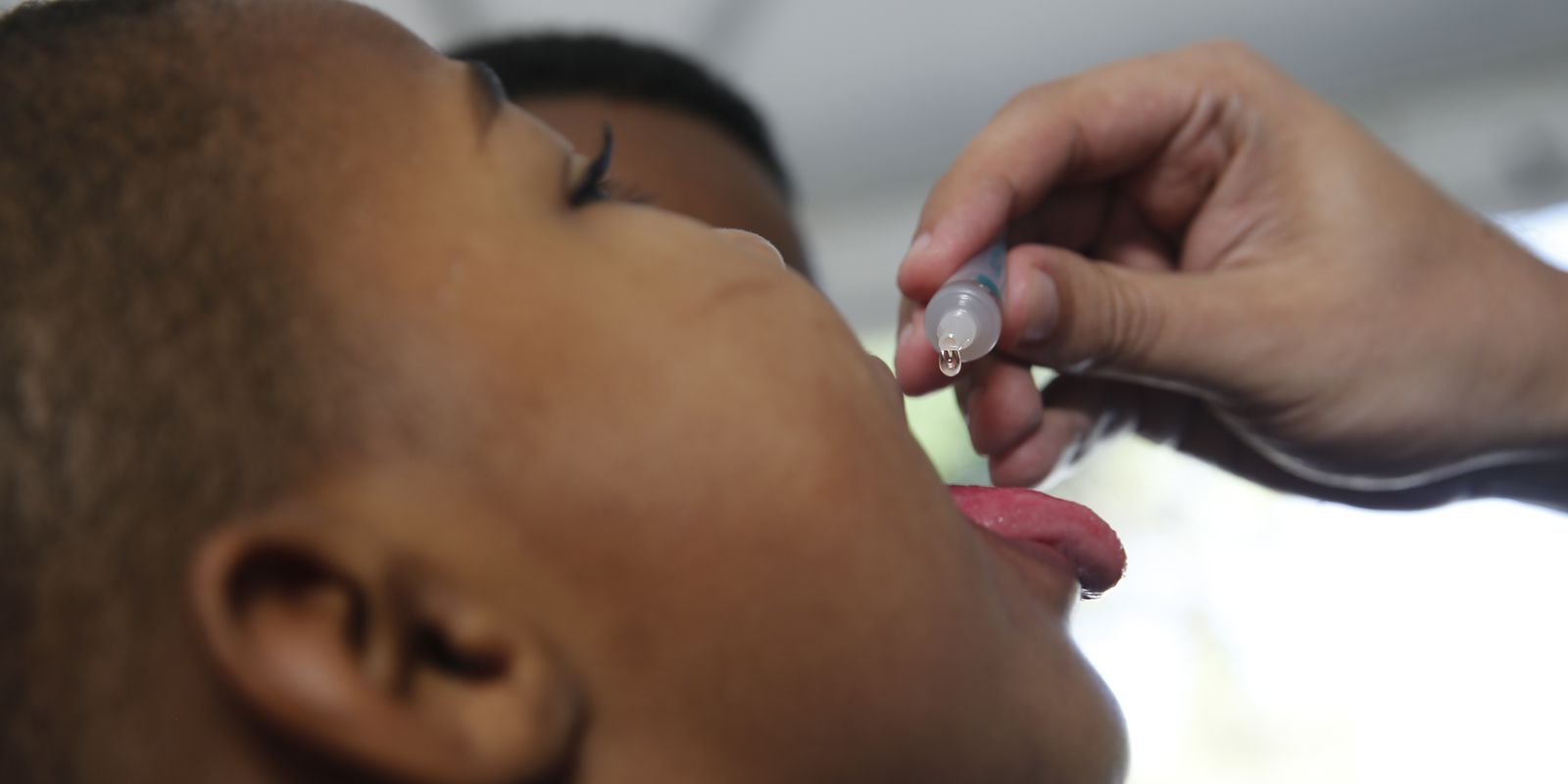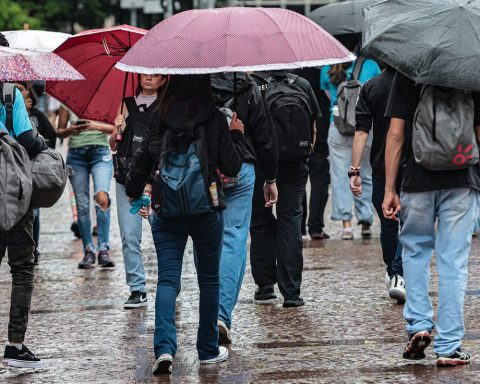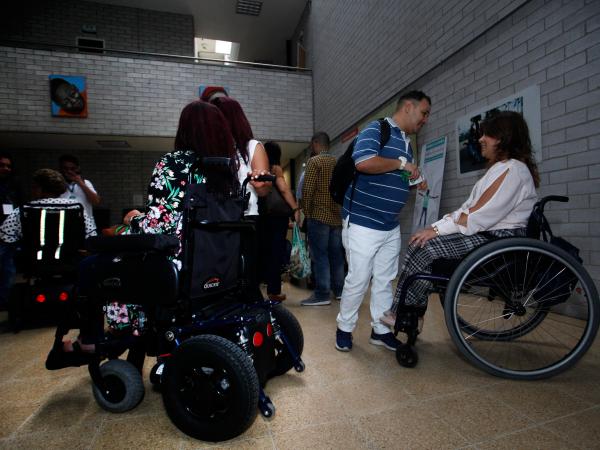Worldwide, after two years of pandemic, the largest continuous drop in childhood vaccinations in the last 30 years has been recorded, according to the World Health Organization (WHO) and the United Nations Children’s Fund (UNICEF). Data released today (15) show that 25 million children are delayed in their vaccines. Brazil is among the ten countries in the world with the highest number of children with delayed vaccination.
The drop in vaccination is measured by the diphtheria, tetanus and pertussis vaccine (DTP3), used as a marker of vaccine coverage. In all, in 2021, there are 2 million more children with vaccine delay than they were in 2020 and 6 million more than in 2019. Children must receive three doses of the vaccine. The percentage of children who are fully vaccinated fell by five percentage points between 2019 and 2021, to 81%. In Brazil, doses are applied to babies at 2, 4 and 6 months of age.
The organizations show that among the 25 million children, 18 million have not received any doses of the vaccine and the vast majority of them live in low- and middle-income countries, such as India, Nigeria, Indonesia, Ethiopia and the Philippines. Among the countries with the largest relative increases in the number of children not receiving a single vaccine between 2019 and 2021 are Myanmar and Mozambique.
Brazil is among the ten countries with the most children who are not up to date with the vaccination schedule. In the country, three out of ten children did not receive necessary vaccines. This means that 70.4% of children received at least the first dose of DTP, or pentavalent, that is, approximately 700,000 children did not receive any dose of the vaccine.
“The concern is very real because vaccine coverage has not increased and there is a serious risk of the return of diseases that had been eliminated or that were rarity”, says UNICEF Health Officer in Brazil Stephanie Amaral.
According to Stephanie, one of the reasons for not vaccinating is the false perception that we are free from a certain disease because they are diseases that no longer appear, such as polio, or infantile paralysis, and whooping cough. “There is a false perception that the vaccine is not necessary, but the opposite. Many diseases are not seen and infant mortality has improved because of vaccination.”
other vaccines
In Brazil, considering other vaccines, such as the first dose of the MMR vaccine, which protects against measles, mumps and rubella, coverage dropped from 93.1% in 2019 to 71.49% in 2021, which also indicates that around 700,000 children did not receive this vaccine.
Globally, coverage of the first dose of measles vaccine dropped to 81% in 2021, also the lowest level since 2008. This means that 24.7 million children missed their first dose of this vaccine in 2021, 5.3 million more than in 2019. Another 14.7 million did not receive the required second dose.
Also, compared to 2019, 6.7 million more children missed the third dose of the polio vaccine and 3.5 million missed the first dose of the HPV vaccine, which protects girls against cervical cancer. later in life. More than a quarter of the HPV vaccine coverage that was achieved in 2019 was lost. This, according to international organizations, has serious consequences for the health of women and girls.
The decline in childhood vaccination is due, according to the study, to many factors, including an increasing number of children living in conflict and vulnerable environments, where access to immunization is often challenging. The organizations also point to the increase in misinformation and challenges related to covid-19, such as service and supply chain interruptions, diversion of resources to respond to the pandemic and preventive measures that limited access and availability as reasons for the decline. of the immunization service.
Incentive to vaccination
This historic setback in immunization rates is taking place against a backdrop of rising rates of severe acute malnutrition. “Children are losing rights, the right to health, to adequate food. Measures and strategies are needed to avoid this. In a situation of hunger, the immune system is weakened and, in case of illness or contact with the disease, these children are more susceptible to getting sick”, says Stephanie.
Vaccination is important, according to the study, to prevent disease outbreaks and prevent preventable deaths of children and adolescents. Inadequate coverage levels have resulted in preventable measles and polio outbreaks in the past 12 months.
International organizations recommend that governments and other actors responsible for population health intensify vaccination recovery efforts to address the backlash in routine immunization, expand outreach services in underserved areas to reach unvaccinated children, and implement campaigns to prevent outbreaks.
In addition, they recommend that they combat misinformation and increase uptake of vaccines, particularly among vulnerable communities; strengthen investment in primary health care and increase investment in research to develop and improve vaccines and immunization services.
monitoring
In a statement, the Ministry of Health says that it closely monitors vaccination coverage and has worked to intensify vaccination strategies.
“In recent years, Pasta has promoted multi-vaccination campaigns to update Brazilians’ vaccination records. National polio vaccination and multi-vaccination campaigns to update the vaccination booklet for children and adolescents are planned for the second half of 2022,” he says.
The Ministry of Health adds that the measles vaccination coverage target is 95% and, so far, 46.08% of the target audience has received the immunizer.
The triple viral vaccine is part of the vaccination schedule and is offered in health units at any time of the year. According to the folder, the 2022 vaccine coverage will only be known after the consolidation of data on the application of immunizations from the first day of January to the last day of December.
The Ministry of Health highlights that, through the National Immunization Program (PNI), it has been developing and intensifying strategies necessary to face the challenges and revert the low vaccination coverage, in partnership with states and municipalities. In addition, it states that it encourages the population to be vaccinated against vaccine-preventable diseases, and clarifies the benefit and safety of vaccines, through its official communication channels.
*Material updated at 8:05 pm to include the position of the Ministry of Health.


















